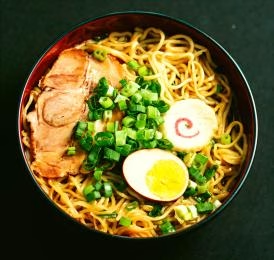Boiling eggs in hot water or boiling them in boiling water are both common cooking methods. But which method is better for preserving nutrients in the eggs?
Boiling eggs in hot water vs. boiling them in hot water?
Boiling eggs in hot water?
Prepare hot water at 65-70°C without a thermometer.
Pour one cup of room-temperature water into one liter of boiling water to create a boiled egg of approximately 65-70°C. The water temperature varies depending on the season, so please adjust accordingly.
Soak the eggs in 65-70°C water for 20-30 minutes.
Putting eggs directly into hot water from the refrigerator will result in uneven cooking due to the large temperature difference. Therefore, remove them from the refrigerator 30 minutes before cooking and allow them to warm up. Place only five eggs in the pot at a time.
Warm slowly.
Not only does it have antibacterial properties, it also retains 90% of its anti-aging properties.
Eggs contain an optimal ratio of amino acids. You might think that raw, unheated eggs are the most nutritious, but this is not the case. The protein in raw egg whites contains a component that strongly resists digestive enzymes, resulting in over 51% of the protein being unabsorbed by the body.
For this reason, if you want to truly absorb the protein in eggs, you must cook them.
The only caveat is that overheating can inactivate the bactericidal lysozyme in the egg whites and the anti-aging lecithin in the egg yolk. Lysozyme activity drops significantly to 10% after just 10 minutes of boiling. For this reason, never heat eggs in boiling water.
Boiling water causes the yolk to lose 23% of its nutrients.
Egg yolks contain more nutrients than egg whites, and all of the vitamin A is in the yolk. The lutein and zeaxanthin in the egg yolk are not resistant to high temperatures, and 23% of them are lost when boiled in boiling water.
Or boil them in boiling water?
The protein in the egg white and yolk causes them to coagulate at different temperatures.
Due to the different protein content in egg white and yolk, they coagulate at different temperatures. Taking advantage of the yolk’s lower coagulation temperature, you can make a perfect onsen tamagoyaki.
When eggs are boiled in boiling water, the temperature of the B vitamins rises dramatically. While the loss is minimal due to the shell’s protection, it still reduces the B vitamin content.
Boiled eggs at 65°C are the most nutritious.
The coagulation temperature of egg whites is between 60 and 80°C, and that of egg yolks is between 65 and 75°C. This means that the yolk coagulates earlier than the egg white. After 10 minutes in hot water, both the egg white and yolk are completely coagulated.
Both the lysozyme in the egg white and the lecithin in the egg yolk begin to denature at around 70°C. Therefore, gradually warming the egg in warm water (no higher than 70°C) will best preserve its nutrients.
Add a little cold water to boiling water to make it lukewarm, then soak the egg in it for 30 minutes. This “hot spring egg method” is the easiest to digest and absorb, and it’s convenient and worth a try.


Leave a Reply